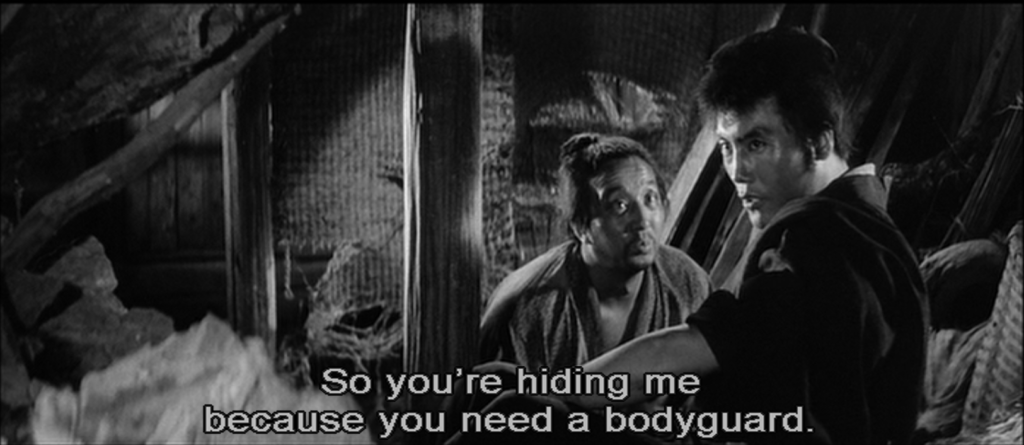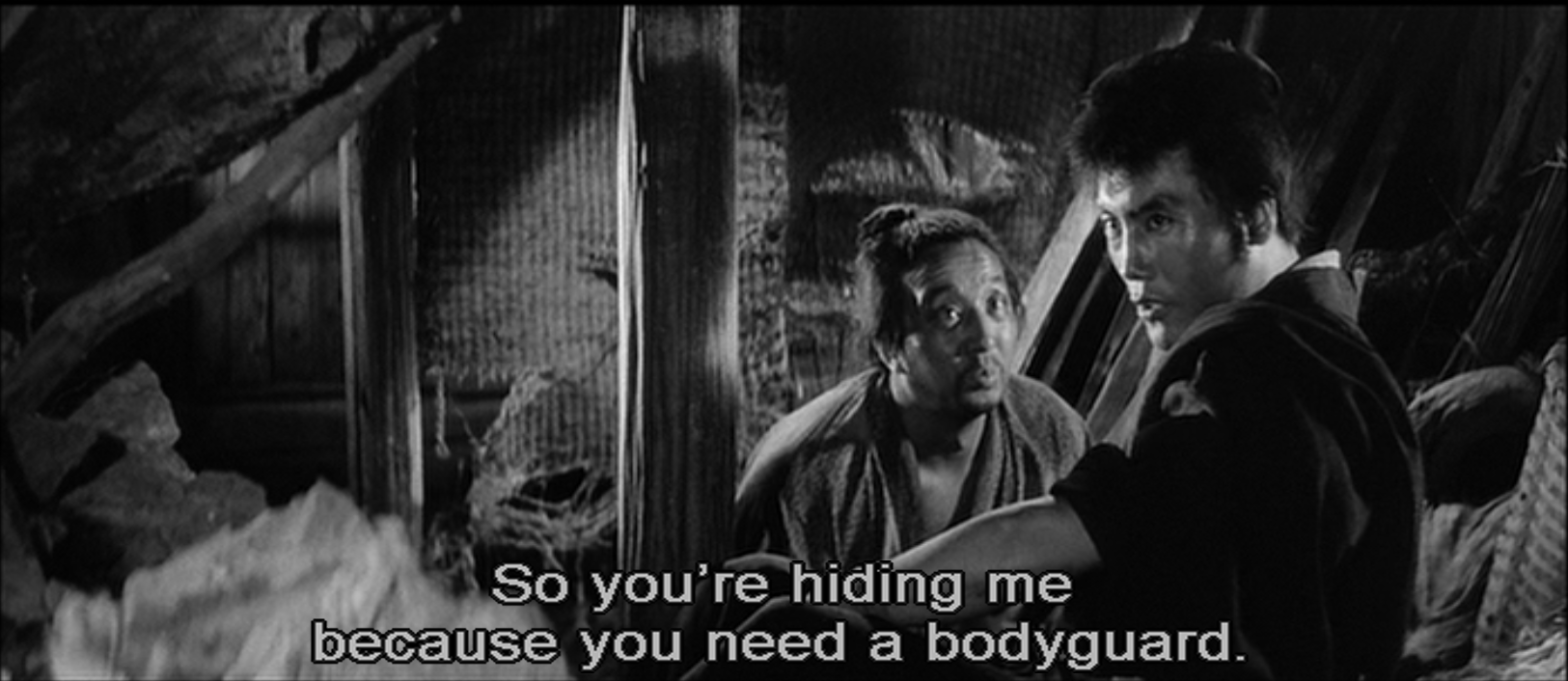Movie Review: Sword of the Beast (1965) directed by Hideo Gosha
It is 1857, towards the end of the Tokugawa Shogunate. Commodore Perry’s ships have forced Japan to open its ports, and social change is rippling across Japan. Yuuki Gennosuke (Mikijiro Hira) thought he was going to help bring reform, but instead wound up killing his clan’s “counselor.” Now he’s on the run from the official’s daughter Misa (Toshie Kimura), her fiancé Daizaburo (Kantaro Suga) who was once his best friend, and a vendetta squad from the clan.

Reduced to a fugitive “beast”, Gennosuke narrowly escapes several bad situations before being sheltered by a farmer named Gundayu (Takeshi Kato). This is not a selfless act. Gundayu has a get rich quick scheme based around illegal gold panning on a mountain that’s Shogunate land. Getting caught means the death penalty, so he needs a confederate skilled in combat. Gennosuke agrees as he will need money to leave the district and disappear.
They’re not the only ones to have this idea, as there are several other poachers on the mountain. The most formidable is Jurata Yamane (Go Kato) who with his wife Taka (Shima Iwashita) has been prospecting on behalf of his clan for the promise of promotion to a full retainer with a decent salary. He’s killing anyone who finds them, but time is running out before the Shogunate patrols figure out what’s going on.
This was Hideo Gosha’s second film, after Three Outlaw Samurai (see my earlier review), and you can see definite improvement in his directing skills. He’s gotten the hang of the difference between shooting for television vs. movie screens. It takes a while before we can assess Gennosuke’s character as we first see him already on the run and having thrown away his honor as a samurai. The flashbacks are out of order, concealing important details of his motivations.
Gennosuke is contrasted with several other “beasts” on the mountain, and the varying levels at which they’ve thrown away the trappings of civilized behavior. There are times when sticking to what honor or the orders you’ve been given demands is crueler than acting on natural impulses, but too far into the latter and you become worse than a beast.
Yamane is the mirror that Gennosuke truly sees himself in, as he learns that the stranger’s clan leadership is no more trustworthy than his own. Reform will come, but not from any of the characters in this movie. There are survivors, but none of them can go home.
Good use of scenery, especially the small river most of the action takes place near or in. The action scenes are decent.
Content note: Several swordfights, mostly lethal, not particularly gory. A couple of more brutal murders. Domestic violence. Rape (off camera), implied nudity. Consensual extramarital sex is discussed but not carried out.
Overall: A good enough samurai revenge tragedy. It’s solidly put together and easy to follow despite the flashback thing. Recommended to fans of samurai movies.

